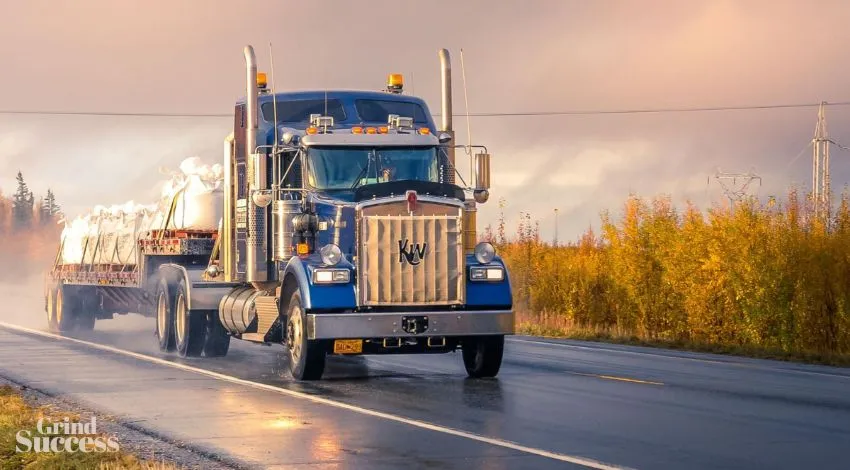Insights And Strategies: Navigating Commercial Truck Insurance For A Successful Trucking Company

Running a successful trucking business requires careful planning and strategy. One of the most important considerations is having the right commercial truck insurance policy in place to protect your company from potential risks and liabilities.
Having an understanding of how to navigate commercial truck insurance policies can help ensure that you have adequate coverage for your specific needs, while also keeping costs under control.
We’ll explore insights and strategies for navigating commercial truck insurance so you can make sure your business is well-protected without breaking the bank.
Understanding The Basics Of Commercial Truck Insurance
Considering high risk truck insurance is important for trucking companies. It helps protect them from any potential risks or liabilities.
To make sure that you have the right kind of coverage for your business, it’s important to understand how commercial truck insurance works.
This article explains some key insights and strategies to help you navigate commercial truck insurance so you can get the coverage that fits your needs without costing too much money.
First, it’s important to understand the basics of commercial truck insurance, like what types of policies are available and what kinds of protection they offer.
Then you need to look at factors like vehicle type and size when choosing a policy, as well as explore different options such as liability coverage and collision coverage so you can make sure all bases are covered.
Research companies that provide commercial truck insurance services in order to compare costs before making a decision on which policy best suits your needs.
Assessing Your Risk And Coverage Needs
As a trucking company, it’s important to accurately assess the risks and coverage needs of your business. Some factors to consider include:
Evaluating these factors will help determine what level of liability coverage you need, as well as whether additional coverage like collision or comprehensive insurance would be worthwhile investments to protect against potential losses.
The costs of premiums will depend on the risks, so it’s important to be thorough in assessing your needs before purchasing a policy. Doing so can help ensure there are no coverage gaps while also keeping premiums affordable.
Shopping Around For The Best Policy And Price
Once you understand the basics of commercial truck insurance and have assessed your company’s specific needs, it’s time to start shopping for a policy.
Here are some strategies to help you find the best coverage at an affordable price:
Comparing Policies To Find The Right Fit For Your Business
When comparing commercial truck insurance policies, there are several important factors to evaluate:
Coverage limits:
Higher liability limits and more coverage options like comprehensive insurance will typically lead to higher premiums but also provide greater protection in the event of a claim. Assess the value of your business’ assets and potential lawsuit costs to determine appropriate coverage limits.
Premium costs:
Premiums will depend on the specifics of your business and risk profile. Get quotes from multiple providers based on the details of your operation to compare costs.
While lower premiums may be appealing, make sure the coverage meets your needs and isn’t too limited. It’s about finding a balance between affordability and sufficient coverage.
Discounts:
Different providers offer a range of discounts for things like safe driving records, anti-theft devices, and driver training. Check what discounts you may qualify for and compare the overall premium costs with discounts applied. Even a 5-10% discount can add up to significant savings over time.
Customer service:
The level of service and support can vary between insurance companies. Read reviews from other customers to see the quality of service, how claims are handled, and general customer satisfaction.
If service is a priority, you may be willing to pay slightly higher premiums for a provider with a solid reputation for customer experience.
Financial stability:
Choose a provider with a strong financial rating and stability. This indicates they are less risky to do business with and more likely to be around to cover any claims. Independent rating agencies like A.M. Best provide ratings on the financial strength of insurance companies.
Final Thoughts
Finding the right commercial truck insurance policy for your business can be a complex process. Comparing quotes from multiple providers and looking for discounts is essential to get the best coverage at an affordable price.
When making your decision, consider factors like coverage limits, premiums costs, customer service ratings, and financial stability of insurers.
With careful comparison shopping and negotiation tactics you should be able to find a high-value policy that meets both your budget and protection needs.
Don’t forget to read reviews before choosing a provider so you know what kind of experience other customers have had with them in the past.
By taking these steps now, you’ll ensure that your business has the necessary security it needs when on the road or facing unexpected events down the line.
This is a Contributor Post. Opinions expressed here are opinions of the Contributor. Grindsuccess does not endorse or review brands mentioned; does not and cannot investigate relationships with brands, products, images used and people mentioned, and is up to the Contributor to disclose.
